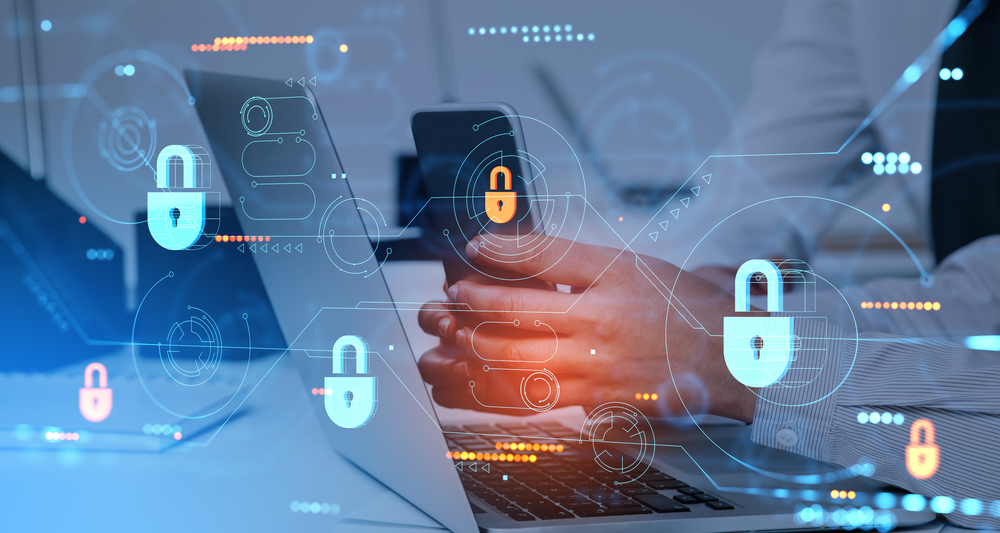The Ultimate Guide to Corporate Security: Best Practices and Strategies

In recent times, we have experienced a rapidly evolving digital landscape. Ensuring the security of corporate information and assets is more crucial than ever. Cyber threats are becoming more sophisticated. Businesses, regardless of their size, are increasingly targeted.
This guide will walk you through the best practices and strategies. They can help you fortify your company’s security posture. Keep on reading to learn more about corporate security strategies.
Understanding Corporate Security
Corporate security encompasses measures and protocols. They are used to protect an organization’s information, assets, and personnel. It combines both physical security (protecting infrastructure) and cybersecurity (protecting digital data).
Why Corporate Security Matters
A robust security framework can help prevent data breaches. It can safeguard intellectual property, protect employees, and maintain customer trust. Failing to prioritize security can result in significant financial losses. There will also be legal consequences and reputational damage.
Best Practices and Strategies for Corporate Security
Organizations must adopt comprehensive security measures. They should safeguard their data, assets, and reputation. Here are some best practices for corporate security that every business should implement.
Implement Strong Password Policies
Passwords are the first line of defense against unauthorized access. Ensure that all employees use strong, unique passwords for their accounts. A strong password typically includes a mix of letters, numbers, and special characters.
Encourage employees to change their passwords regularly. They must also avoid using common words or easily guessable information.
Use Two-Factor Authentication (2FA)
Two-factor authentication adds an extra layer of security. It requires you to provide two forms of verification before granting access. This could be something the user knows (a password) and something they have (a smartphone app).
2FA significantly reduces the risk of unauthorized access. It is true even if a password is compromised.
Educate Employees About Phishing
Phishing attacks are a way for hackers to access information. Educate your employees about the dangers of phishing. Encourage them to verify the sender’s identity. Regular training sessions can help keep this knowledge fresh in their minds.
Regularly Update Software
Outdated software can have vulnerabilities that hackers can exploit. Ensure that all software are updated. These include operating systems and applications. This practice helps close any potential security gaps and keeps your systems protected.
Use Firewalls and Antivirus Software
Firewalls and antivirus software are essential tools for protecting your network. Firewalls act as a barrier between your internal network and external threats. On the other hand, antivirus software scans for and removes malicious programs.
Make sure these tools are installed. They should also be regularly updated to provide the best protection.
Backup Data Regularly
Data loss can occur due to cyberattacks, hardware failures, or natural disasters. Regularly backing up your data ensures that you can recover important information. Store backups in a secure, off-site location to protect them from physical threats.
Restrict Access to Sensitive Information
Not all employees need access to all company information. Implement role-based access control (RBAC) to restrict access to sensitive data. This way, only authorized personnel can view or modify critical information.
Regularly review and update access permissions. Ensure that they align with current roles and responsibilities.
Conduct Regular Security Audits
Regular security audits help identify potential vulnerabilities. They ensure that security measures are effective. Conduct both internal and external audits. You can get a comprehensive view of your security posture in doing so. Address any issues found during the audits promptly to mitigate risks.
Create an Incident Response Plan
Despite your best efforts, security incidents can still occur. An incident response plan outlines the steps to take in case of a security breach. This plan should include procedures for containing the breach. It should also notify affected parties and restore systems to normal operation. Regularly review and update the plan to ensure it remains effective.
Foster a Culture of Security
Finally, fostering a culture of security within your organization is crucial. Encourage employees to take security seriously and report any suspicious activities. Make security a core part of your company’s values and practices.
Why Work with Corporate Security Experts?
Working with experts offers several benefits. Here are some of the things you need to know:
Specialized Knowledge
There are corporate security experts who operate using a global security operations center. They have in-depth knowledge of different security threats. They know how to identify, assess, and respond to various risks. Their expertise covers areas like cybersecurity, physical security, and data protection.
Customized Security Solutions
Every business is unique, and so are its security needs. Corporate security experts can develop customized security plans tailored to your specific requirements. They conduct thorough assessments to understand your company’s vulnerabilities. They also create strategies to address them. This personalized approach ensures the best business protection.
Proactive Threat Management
Security experts don’t just react to threats; they actively work to prevent them. They implement proactive measures to identify and mitigate risks. This includes regular security audits, vulnerability assessments, and continuous monitoring. By staying ahead of potential threats, they help keep your business safe and secure.
Cost-Effective Solutions
Hiring full-time security staff can be costly, especially for small and medium-sized businesses. Corporate security experts offer a cost-effective alternative. You can access top-notch security services without the need for a large, in-house team. This allows you to allocate your resources more efficiently.
How Corporate Security Experts Can Help
One of the biggest threats businesses face today is cyberattacks. Corporate security experts can help protect your digital assets. They can implement robust cybersecurity measures. This includes firewalls, encryption, and secure access controls.
They also provide employee training in your organization. This ensures everyone knows how to recognize and avoid cyber threats.
Protecting your physical premises is equally important. Security experts can design and implement comprehensive physical security plans. This may involve installing surveillance cameras, access control systems, and alarm systems. They also conduct regular security drills to prepare your staff for potential emergencies.
Learn More About Corporate Security
Cyber threats are constantly evolving. Corporate security is a critical aspect of business strategy. It is essential to implement the best practices and advanced strategies listed above. In doing so, your organization can significantly reduce risks. You can also ensure a secure environment for both data and personnel.
Ready to take your corporate security to the next level? Start by conducting a comprehensive risk assessment today.
For more topics aside from corporate safety, visit our blog!





